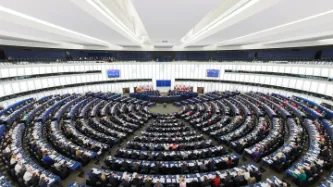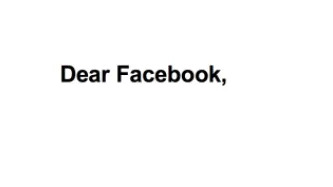Search
Content type: Examples
The two leading Presidential candidates in Ukraine's 2019 elections have expressed frustration at major social media platform's seemingly lack of assistance combatting disinformation and bots. Bots flood social media networks and can promote content or flood platforms with pull requests to have a piece of content taken down. Campaigns are unable to directly contact Google, YouTube, and Facebook for assistance directly and waste resources constantly fighting against bot armies.
https://www.…
Content type: Examples
Facebook's efforts to remove disinformation in the wake of the 2019 Ukrainian Presidential election have so far failed. Politico reports that "Among the Facebook pages that spread spurious claims during the election was one with more than 100,000 followers that ran a video claiming (the Presidential candidate) Zelenskiy will allow Russia to take over the country with a violent military operation. Others portrayed him as a drug addict, or Poroshenko (the other Presidential candidate) as an…
Content type: Examples
Volunteers for Presidential candidate Volodymyr Zelenskiy were tasked with pouring over social media sites to search for disinformation and combat bot armies that spread negative comments about the candidate. Facebook has been slow to take down 'fake news' and so the volunteers search social media sites for such content, and then report it as violating Facebook's terms of service. While Facebook is Ukraine's most popular social media site, Radio Free Europe/Radio Liberty reports that there…
Content type: Key Resources
Ukraine held Presidential elections in April 2019. In the run up to the election, there was much debate on the role of Facebook.
Content type: News & Analysis
This piece was first published in GDPR today in March 2019.
Elections, referendums and political campaigns around the world are becoming ever more sophisticated data operations. This raises questions about the political use and abuse of personal data. With the European Union elections fast approaching and numerous national and local elections taking place across EU Member States, it is essential that the legal frameworks intended to protect our personal data do just that.
Member State…
Content type: News & Analysis
Photo by DAVID ILIFF. License: CC-BY-SA 3.0
Between 23 and 26 May 2019 Europeans will be voting to elect members of the European Parliament.
Since the last elections in 2014, much has changed within and without the European Union: the rise of nationalism and Euroscepticism, the protracted armed conflict in Ukraine and the occupation of Crimea by Russia, the new political orientation of the United States, just to name a few.
Among the new challenges facing these elections is…
Content type: Long Read
This image was found here.
Spain is holding a national general election on April 28 (its third in four years). Four weeks later Spaniards will again go to the polls to vote in the European Parliament elections. At Privacy International we are working to investigate and challenge the exploitation of people’s data in the electoral cycle including in political campaigns. This includes looking at the legal frameworks governing the use of data by political parties and their…
Content type: Examples
In January 2019, Facebook announced it would extend some of the rules and transparency tools it developed for political advertising for upcoming spring elections in Nigeria, Ukraine, India, and the EU. In Nigeria, the site will bar electoral ads from advertisers outside the country where the election is being held, build a searchable library of electoral ads and retaining them for seven years, check the identity of individuals buying political ads against government-issued documents, and…
Content type: Examples
In the run-up to the May 2019 European Parliament elections, Google announced it would launch a new set of transparency tools to combat voter manipulation. Before being allowed to buy advertising on Google platforms, campaigns will be required to verify their identity, and approved ads will be required to display the identity of their purchaser. Google will build a real-time searchable database of all political ads and show their purchasers, costs, and demographics. Facebook announced similar…
Content type: Advocacy
UPDATE 13 February: Facebook announced that it would open up its Ad Archive API next month. Read Mozilla's statement about the response here.
On 11 February 2019, Privacy International joined Mozilla and 36 organisations in an open letter to Facebook call on Facebook to make good on its commitments to provide more transparency around political advertising ahead of the 2019 EU Parliamentary Elections.
Specifically, our open letter urges Facebook to:
Roll out a functional, open Ad…
Content type: Examples
On the night of June 23, 2016, as the polls closed Britain's Sky News broadcast what sounded like a concession statement from Nigel Farage, the leader of the campaign to leave the EU, plus a YouGov exit poll indicating that the country had voted to remain; over an hour later, Farage reiterated his concession to the Press Association. The combination pushed up the pound on the world's foreign exchanges. A few hours later, when the true result was announced, the pound crashed - but in between a…










